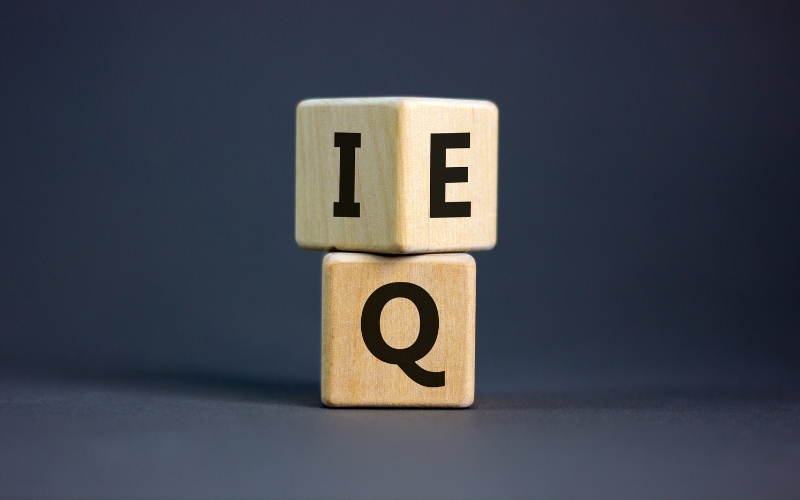- Preparation Is Key: Define the Role and Expectations Clearly
- Craft Thoughtful, Open-Ended Questions
- Assess Emotional Intelligence (EQ)
- Focus on Cultural Fit and Leadership Alignment
- Use Behavioral and Situational Interview Techniques
- Incorporate Multiple Perspectives in the Interview Process
- Evaluate Vision and Long-Term Strategy
- Key questions to assess vision and strategy include:
- Conduct Effective Executive Interviews to Secure Your Executive Talent Today
Hiring top executives is one of the most critical tasks for any organization. The stakes are high because C-suite and senior leaders shape company culture, influence strategy, and drive growth. Conducting effective executive interviews requires a specialized approach that differs from regular hiring processes. HR teams must be equipped with the right tools, techniques, and strategies to assess not only qualifications but also leadership qualities and cultural fit.
In this guide, we will explore how to conduct effective executive interviews to ensure your organization recruits visionary and competent leaders.
Preparation Is Key: Define the Role and Expectations Clearly

Before the interview process begins, it’s crucial to have a comprehensive understanding of the role. Executive positions are often complex, so HR teams must work closely with key stakeholders—such as the CEO, board members, or department heads—to define the role and set clear expectations.
Consider the following when preparing for the interview:
Job Description: Clearly outline the responsibilities, key performance indicators (KPIs), and expectations for the role. Understand whether the executive will be driving change, managing stability, or scaling operations.
Cultural Fit: Beyond technical skills, determine the qualities that align with your company’s culture and values. Executives who fit well culturally are more likely to foster collaboration and enhance the workplace environment.
Leadership Qualities: Identify the leadership traits that are crucial for success in your organization. For example, should the executive be more visionary or operational? Collaborative or authoritative?
Once the job profile is defined, ensure that all members of the hiring committee are aligned on what they are looking for in the ideal candidate.
Craft Thoughtful, Open-Ended Questions

Effective Executive Interviews should go beyond assessing technical skills and delve into leadership abilities, strategic thinking, and long-term vision. Open-ended questions allow candidates to elaborate on their experience, approach to challenges, and management style. Craft questions that require candidates to share specific examples and reflect on their decision-making processes.
Here are some key areas to explore with open-ended questions during Effective Executive Interviews:
- Leadership Style: “Can you describe a time when you had to lead a team through a major organizational change? What was your approach?”
- Decision-Making: “What is the most difficult business decision you’ve had to make in your career, and how did you arrive at it?”
- Conflict Resolution: “Tell us about a situation where there was a significant disagreement within your leadership team. How did you handle it?”
- Vision and Strategy: “What long-term strategies have you implemented that have had a lasting impact on the company?”
- Cultural Fit: “How do you ensure that your leadership aligns with company values and culture?”
These types of questions encourage candidates to think critically and provide insights into how they operate as leaders.
Assess Emotional Intelligence (EQ)

Emotional intelligence (EQ) is a critical component of effective executive interviews, especially at the executive level. Executives with high EQ are able to manage their emotions, understand others, and navigate complex interpersonal relationships. They foster a positive working environment, encourage collaboration, and are often better at resolving conflicts.
To assess EQ during an effective executive interview, look for signs of self-awareness, empathy, and communication skills. You can ask questions like:
- “How do you handle stress or high-pressure situations?”
- “Can you share an example of how you helped a team member grow and develop?”
- “How do you manage conflicts or differing opinions within your team?”
By focusing on emotional intelligence, HR teams can identify leaders who are not only competent but also capable of inspiring and managing people effectively
Focus on Cultural Fit and Leadership Alignment

Cultural fit is essential in executive roles because senior leaders directly impact the company’s environment and employee morale. During the interview, evaluate whether the candidate’s leadership style aligns with your company’s culture. Do they prioritize collaboration, innovation, or a more structured approach?
To assess cultural fit in Effective Executive Interviews, involve key stakeholders in the interview process who can provide insight into the organization’s culture and values. Additionally, ask the candidate about their approach to building teams and leading within specific cultural frameworks. For example:
“What is your approach to fostering a collaborative culture?”
“How do you adapt your leadership style to different company cultures?”
“What role does diversity and inclusion play in your leadership style?”
These questions can help reveal whether the candidate will complement and enhance the existing culture, or if their leadership style may present challenges.
Use Behavioral and Situational Interview Techniques

Behavioral and situational interview techniques are powerful tools for Effective Executive Interviews because they allow candidates to provide real-life examples of how they have handled challenges in the past. These techniques focus on past behaviors as indicators of future performance.
Behavioral questions typically start with “Tell me about a time when…” or “Give me an example of…” and ask the candidate to describe how they handled specific situations. For instance:
“Tell me about a time when you had to make a decision that was unpopular with your team. How did you manage it?”
“Give me an example of a time when you had to pivot your strategy. What prompted the change, and what was the outcome?”
Situational questions present hypothetical scenarios to gauge how candidates would approach them. These questions can be tailored to specific challenges your company is facing, such as:
“If you were tasked with turning around a struggling department, what would be your first steps?”
“How would you handle a situation where your leadership team was divided on a major strategic decision?”
Both behavioral and situational interview techniques provide valuable insight into a candidate’s problem-solving abilities, adaptability, and decision-making processes, making them essential for Effective Executive Interviews.
Incorporate Multiple Perspectives in the Interview Process

Executive roles have a wide-ranging impact across the organization, so it’s important to involve multiple perspectives in the interview process for Effective Executive Interviews. Including key stakeholders such as board members, department heads, and even direct reports can provide a more holistic view of the candidate’s potential fit.
Consider implementing panel interviews, where different stakeholders can ask questions based on their areas of expertise. This collaborative approach ensures that you assess the candidate from various angles, such as strategy, team-building, and company culture.
By gathering input from multiple perspectives, HR teams can make more informed decisions about the candidate’s ability to excel in the role and ensure Effective Executive Interviews.
Evaluate Vision and Long-Term Strategy

The role of an executive is to drive the company’s vision and ensure long-term success. During the interview, ask candidates about their approach to long-term strategy and how they have implemented visionary thinking in their previous roles. Strong executive candidates should have a clear perspective on where they want to take the company and how they plan to get there.
Key questions to assess vision and strategy include:
- “How do you develop and execute long-term strategies that align with company goals in the context of Effective Executive Interviews?”
- “Can you share an example of a successful strategic initiative you’ve led during Effective Executive Interviews?”
- “What do you see as the biggest challenges and opportunities for our industry over the next five years in relation to Effective Executive Interviews?”
These questions help HR teams evaluate whether the candidate can provide the leadership needed to guide the organization into the future
Conduct Effective Executive Interviews to Secure Your Executive Talent Today
Conducting effective executive interviews is a multi-faceted process that requires careful preparation, strategic questioning, and a focus on both technical and leadership qualities. By incorporating thoughtful, open-ended questions, assessing emotional intelligence, and focusing on cultural fit, HR teams can identify visionary leaders who are capable of driving success.
For organizations seeking top-level executive talent, partnering with expert recruiters can streamline the process and help secure the best candidates. JRG Partners specializes in recruiting top-tier executive talent, offering tailored solutions to meet your leadership needs.
Don’t miss the opportunity to find the perfect executive match for your organization. Contact JRG Partners today and elevate your leadership team!


